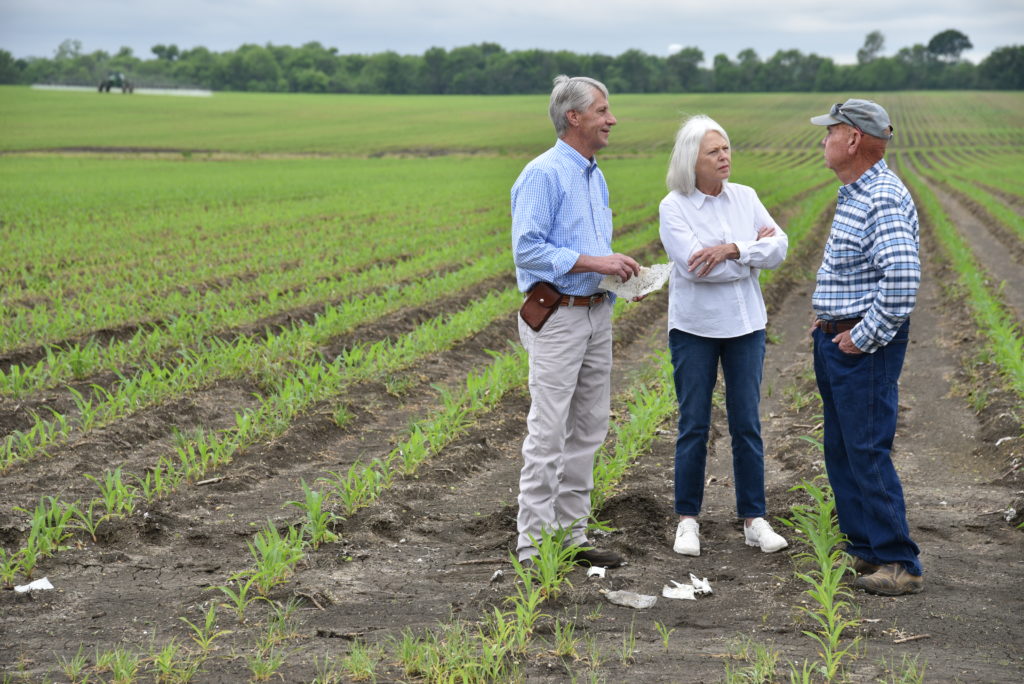Farmers Lead On Litter Control

By Jeff Helms
Windblown plastic bags, sauce-laden Styrofoam and discarded drink bottles mar the landscape along Alabama roads. Litter — made worse by COVID-fueled carryout orders — is more than an eyesore for Alabama farmers. It’s a pricey problem.
“When folks dump stuff on your land, you’ve got to clean it up,” said Macon County farmer Harry Noble, who serves on the board of Alabama PALS (People Against a Littered State) with his wife, Joy. “When a Bush Hog runs over litter, it makes a thousand pieces instead of just a few. There could be a tire or something in there, and it will tear up equipment. Plastic can wrap around shafts, burn bearings and damage seals.”
Litter’s impact on farmers, forest landowners and rural families led to PALS’ creation in 1987 by then-State Forester Bill Moody. Archives discovered during the Alabama Farmers Federation’s centennial celebration last year, however, showed the organization’s fight against illegal dumping began decades earlier.
“Back when we started, illegal dumping was a huge problem, whether it was on a private landowner’s property or at a state park,” said PALS Executive Vice President Spencer Ryan. “We worked with the Alabama Farmers Federation, the governor’s office and the Legislature to pass bills so law enforcement can use prima facie evidence for prosecution. It really helped us clean up the illegal dump situation in Alabama.”
Prima facie, meaning “on first impression,” allows names, addresses and other identifying information found in litter to be used as evidence.
While enforcing litter laws is important, Joy said community involvement and education have made the most difference.
“A lot of farmers and forest landowners get involved with organizations like PALS to try to raise awareness,” she said. “We start in elementary schools so young children really learn how wrong it is to litter.”
The Federation and Alabama Farmers Cooperative co-sponsor PALS’ Clean Campus program, which engages students in anti-littering and recycling activities. Ryan said over half of Clean Campus schools are rural. In addition, almost 900 miles of roads are part of the Adopt-A-Mile program. In April, PALS sponsored the Don’t Drop It On Alabama Spring Cleanup and will hold its 35th Coastal Cleanup in September.
“When we started, I think we had four counties involved in our first cleanup,” Ryan recalled. “Because of the Farmers Federation and other sponsors, we now have a statewide program. It’s overwhelming to think about how far we’ve come.”
The Nobles have seen how a few committed volunteers can transform a community. Over 30 years ago, Joy printed flyers inviting neighbors to meet one Saturday to clean up a strip of Highway 80. About two dozen people showed up. Soon, Harry was using farm equipment to help volunteers fill up to 10 roll-off dumpsters during Macon County’s recurring third Saturday cleanups.
“One thing I’ve noticed is the cleaner the place, the cleaner it stays,” Joy said. “The more trash you find in an area, the more trash is going to be there. When people tell me, ‘I can’t clean up where I live because they’re just going to bring it back,’ I tell them my experience has been once you clean it up, people don’t litter as badly.”
The Nobles said farmers and rural residents can help fight litter by getting involved in a local PALS chapter and being careful about their own trash — especially bags and boxes, which can fly out of truck beds when unsecured.
“Take pride in the land,” Harry said. “It’s a reflection on the kind of farming operation you run.”
Joy said landowners and concerned citizens shouldn’t accept litter as inevitable.
“Don’t get discouraged,” she said. “Keep working to keep it clean. Eventually, people are going to pay attention; they’re going to be concerned about the Earth. You can see farmers are good stewards. Where we live is beautiful.”
Visit alpals.org to learn more.
